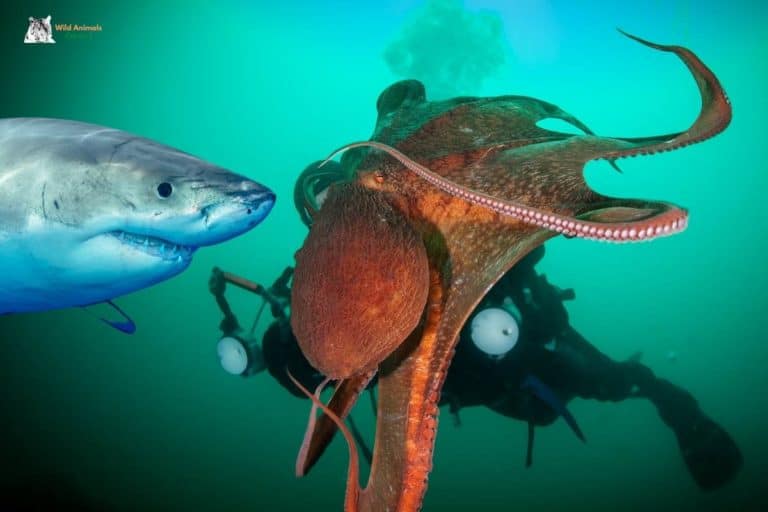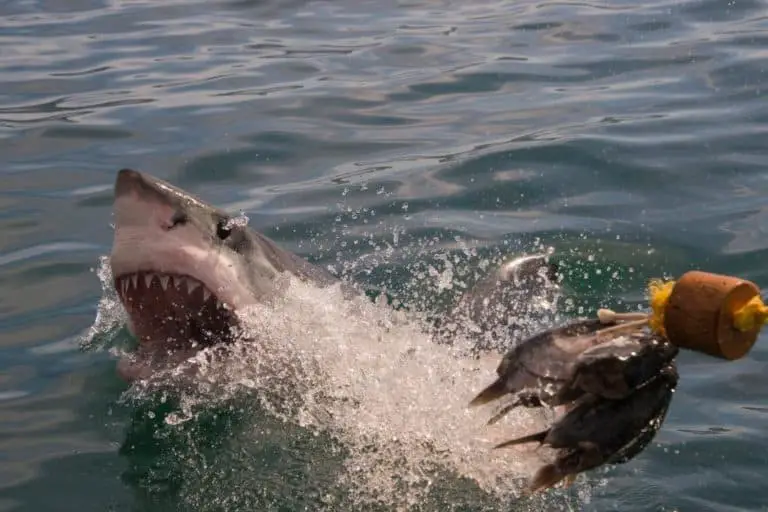Are Nurse Sharks Dangerous or Harmless?
Nurse sharks are not aggressive by nature, but there have been attacks on record that are usually the result of human provocation. These docile creatures are nocturnal, spending their nights scouting the sea bottom for crustaceans, mollusks, and stingrays.
During the day, they often lie together in groups to sleep. Nurse sharks are essential to the reef ecosystem but are hunted for their meat and fins. As a result of this hunting pressure, nurse shark populations have declined sharply in recent years.
Although nurse sharks are not considered dangerous to humans, they should be treated respectfully and left alone.
Can nurse sharks kill you?
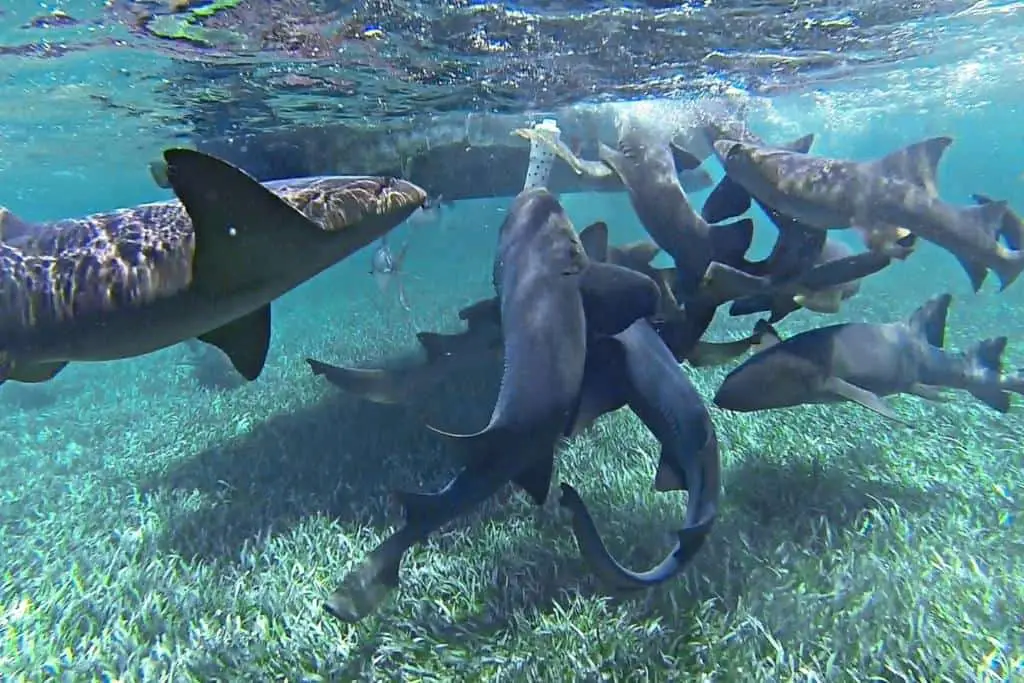
The short answer is: maybe. Nurse sharks are not considered an aggressive species, and attacks on humans are rare. However, they are known to bite when provoked, and their sharp teeth can cause severe damage.
In addition, nurse sharks have a firm grip and have been known to latch onto swimmers and anglers. While there have been no confirmed fatalities from a nurse shark attack, it is certainly possible that one could occur.
Are nurse sharks aggressive?
While nurse sharks may look intimidating, they are actually quite gentle creatures. These sharks can be found in all oceans, including the temperate ones, and they feed on tiny fish and invertebrates at the bottom of the sea.
Nurse sharks are non-aggressive and have never been accused of attacking humans. However, since they are wild animals like all others, they should be handled with care. If you meet a nurse shark in the wild, it is recommended that you give it some space and keep a safe distance away.
Where are nurse sharks found?
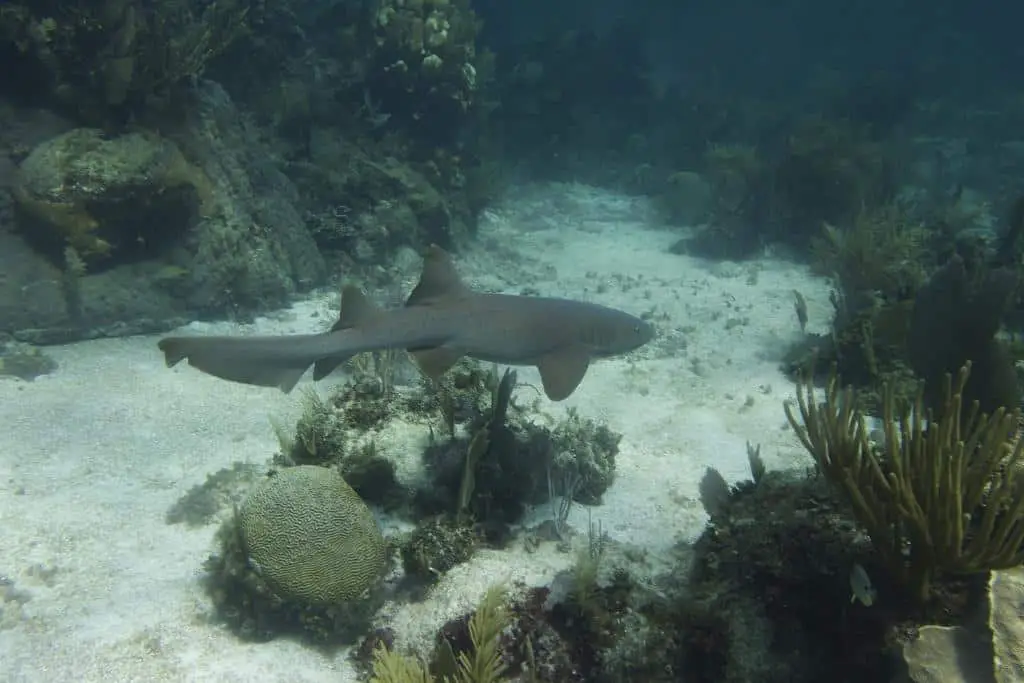
If you’re looking for a nurse shark, you’ll likely find them in the Atlantic and Eastern Pacific coastal waters. These waters are typically warm, around 75 degrees Fahrenheit, just as nurse sharks like.
In addition to being found near the coasts, nurse sharks are commonly found near coral reefs and sea grass beds. This is because these habitats provide the nurse shark with plenty of food to eat.
Nurse sharks primarily feed on small fish, but they will also consume squid, crabs, and shrimp. Consequently, if you’re hoping to spot a nurse shark, these are some excellent places to start your search.
Is swimming with nurse sharks dangerous?

Swimming with nurse sharks is famous for both seasoned divers and snorkelers. These gentle giants are typically found in shallow waters near coral reefs and are known to be relatively docile.
The Caribbean nurse sharks (G. lamniform) are also called the common nurse shark and are found in many other places.
They may be observed throughout most of their range, all along the eastern seaboard of the United States from Maine to South Carolina and off Mexico’s Yucatan Peninsula.
They can grow up to nearly 7 feet long and weigh up to 1,100 pounds. The Bahamas is a popular destination for divers who want to swim with them.
Because local fishers feed nursing sharks near marinas, they have become used to humans’ presence. So, while you might not want to go swimming with a great white shark, a nurse shark is generally considered harmless.
Of course, it’s always best to err on the side of caution and avoid touching or bothering any wild animal. But if you’re looking for a safe and memorable way to get up close and personal with a shark, swimming with nurse sharks is worth considering.
Here are some tips for swimming safely with nurse sharks:
There are some important safety considerations to keep in mind when swimming with these creatures.
- Avoiding touching or stroking the nurse shark’s face or mouth is essential. Although they are not known to be aggressive, nurse sharks have sharp teeth that can cause serious injury.
- It is essential not to feed nurse sharks in the water. This can lead to aggressive behavior, and it can also disturb the delicate ecosystem of the reef.
- Awareness of your surroundings is crucial, and avoiding sudden movements might startle the sharks.
Following these simple guidelines ensures a safe and enjoyable swimming experience with nurse sharks.
Where can I swim with nurse sharks in the Bahamas?
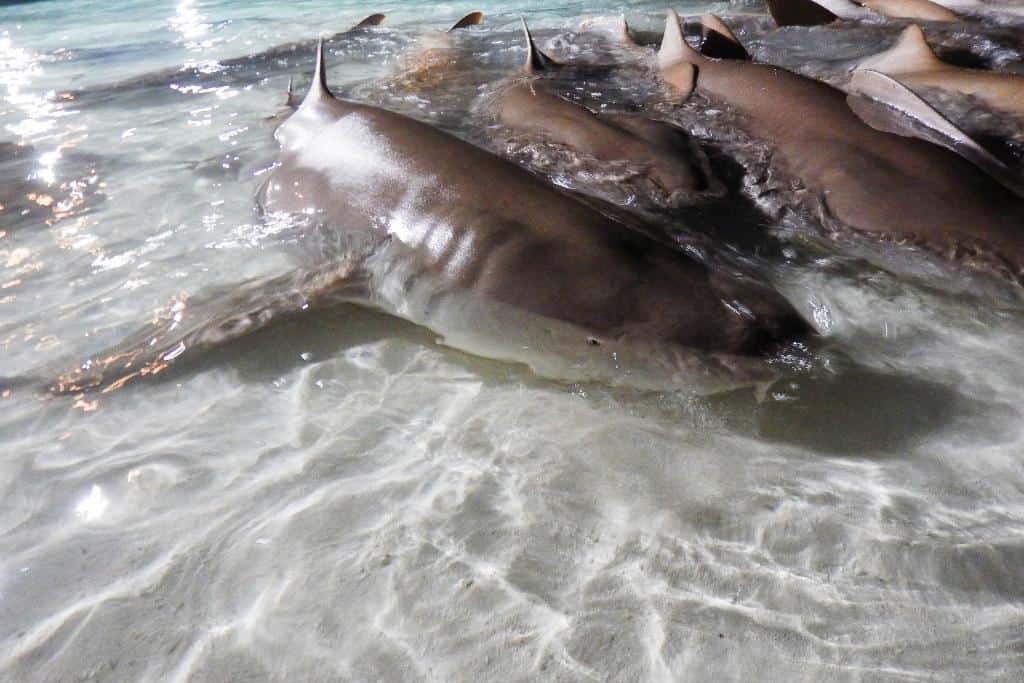
There are a few different places that are popular for swimming with nurse sharks, but one of the most well-known is Compass Cay in the Bahamas.
The tropical waters around the tiny private island are home to several gentle sharks, which the locals consider welcome guests.
Unlike many other places where nurse sharks can be found, the sharks at Compass Cay are well-fed and tend to be well-behaved, making them a safe and enjoyable experience for swimmers of all ages.
Are grey nurse sharks dangerous?
The ‘grey’ nurse shark is not aggressive towards humans and typically retreats from contact. They have been observed to attack divers if they believe they are in danger.
Are tawny nurse sharks dangerous?
No, tawny nurse sharks are not dangerous. Although they are large and powerful, they are gentle giants that pose no threat to humans. They are often seen swimming peacefully alongside other fish and coral in the warm waters of the Indo-Pacific region.
Tawny nurse sharks are not dangerous to humans but should be treated cautiously. If you encounter one of these fantastic creatures, keep a safe distance and do not try to handle or feed them.
